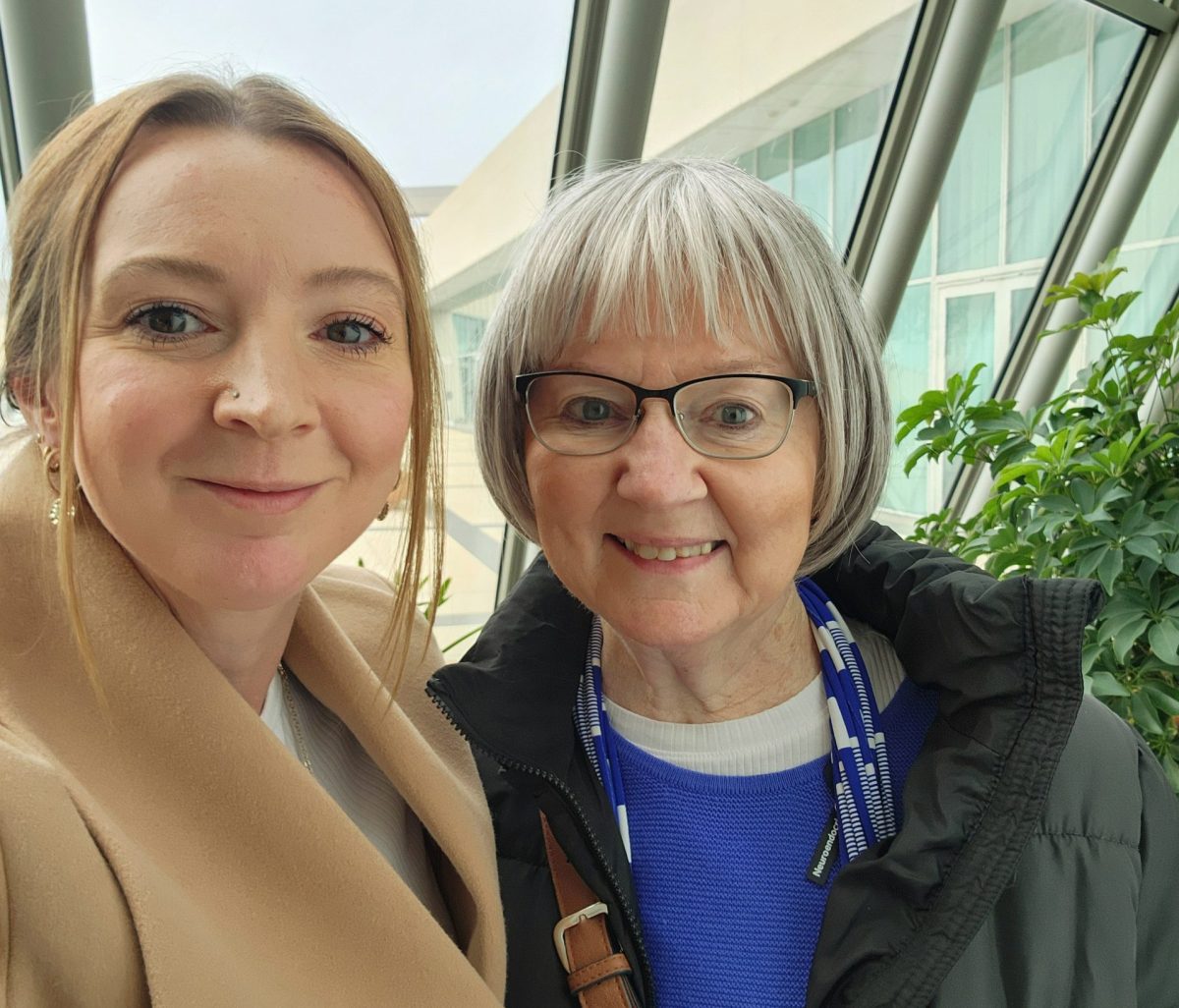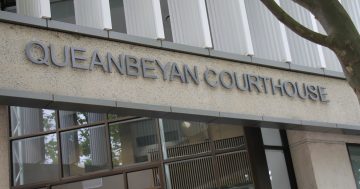
Vanessa Counsel and her mother Elizabeth Counsel at Parliament House lobbying for VHL medication to be listed on the PBS. Photo: Supplied.
Not too many people have heard of Von Hippel-Lindau syndrome (VHL), but there are enough Australians who suffer from the rare cancer for its treatment to be listed on the Pharmaceutical Benefits Scheme (PBS).
But it’s not. Not yet, at least.
Those with the condition are hoping that will soon change and are desperately awaiting news of a recent decision by the Pharmaceutical Benefits Advisory Committee (PBAC), taken at its meeting this month.
There has been a great deal of lobbying for the drug belzutifan (sold under the brand name Welireg) to be listed in order to allow patients access to the medication at an affordable price.
Right now, the treatment costs $12,000 a month.
Recent parliamentary inquiries, petitions and submissions have all led to this point, with an announcement to be made next month.
Vanessa Counsel is a 34-year-old Canberra woman living with VHL – and living with only half a kidney because of it.
“I lost my whole right kidney and half the left kidney to try and manage the cancer growth from VHL tumours throughout both kidneys,” she told Region.
“There are currently benign and malignant tumours in my remaining kidney. I need belzutifan to shrink the tumours to save my remaining kidney tissue.
“If the tumours grow too big or spread, I will have to have the rest of my kidney removed, leaving me dialysis-dependent for the rest of my life.
“I have an innumerable amount of tumours in my pancreas. I am worried if I don’t get the medication in time I will lose my remaining kidney and pancreas, further altering my health and lifespan.
“I have had four surgeries in the past two years. I’ve had two major surgeries to remove tumours from my spinal cord. One in the neck and one in the lower back.
“I’m hoping in raising some awareness, the VHL community will finally get affordable access to life-saving medication.”
If the drug is listed on the PBS, Vanessa’s bill will be $7.70 on her health card benefit – a massive drop from the $12,000 a month she has no way of paying.
The childcare worker grew up in Canberra and, sadly, has no memory of her father because he died when she was just 14 months old. He died from VHL.
“Unfortunately, my brother and I have inherited the condition,” Vanessa said.
“VHL is a genetic disease that can cause tumours – benign or malignant – to develop in the brain, spinal cord, the retina, the kidneys, the pancreas and adrenal glands.
“This results in VHL patients suffering from conditions such as paralysis from spinal tumours, years of dialysis from loss of kidney tissue and seizures from inoperable brain tumours.
“On a positive note, since the VHL gene was first identified in 1993, there have been incredible advances in the understanding and management of VHL.
“With the development of the life-changing drug Welireg, it has been successfully used in the United States for the treatment of VHL for several years.”
In 2022, Welireg was approved for use in Australia, thrilling those with the condition, only for them to subsequently discover that because Welireg is not yet listed on the PBS, it is completely out of reach financially.
Neuroendocrine Cancer Australia organised a petition of more than 17,000 signatures in little more than a week and took it to Parliament House.
Vanessa went with them and also delivered her own submission to a parliamentary inquiry.
Vanessa can only work part-time these days because of the effects of VHL.
“I will be very lucky to live until I am 40 without this medication,” she said.
“We just need for it to be affordable and listed on the PBS. We’ve all waited too long already.
“It’s a race against the clock, and some people could die waiting.”
In response to questions from Region, a spokesperson for the Health Department confirmed the PBAC considered an application for PBS listing of belzutifan (Welireg) for the treatment of VHL disease at its recent July 2024 meeting.
“Meeting outcomes will be published on 23 August 2024 on the PBS website,” they said.
“If belzutifan receives a positive PBAC recommendation for PBS listing for the treatment of VHL disease, other processes need to be completed before it can be approved for listing. This includes pricing negotiations with the manufacturer, finalisation of the conditions for listing, quality and availability checks, and consideration by government.
“The government is committed to listing every medicine that is recommended by the PBAC where the pharmaceutical company agrees to the terms of listing.
“The Department of Health and Aged Care works to finalise arrangements with the pharmaceutical company and proceed to a PBS listing as quickly as possible, once the company has submitted the necessary documentation.
“The status of a medicine as it progresses through the PBS listing process is available on the Medicines Status Website. This is updated monthly.”













